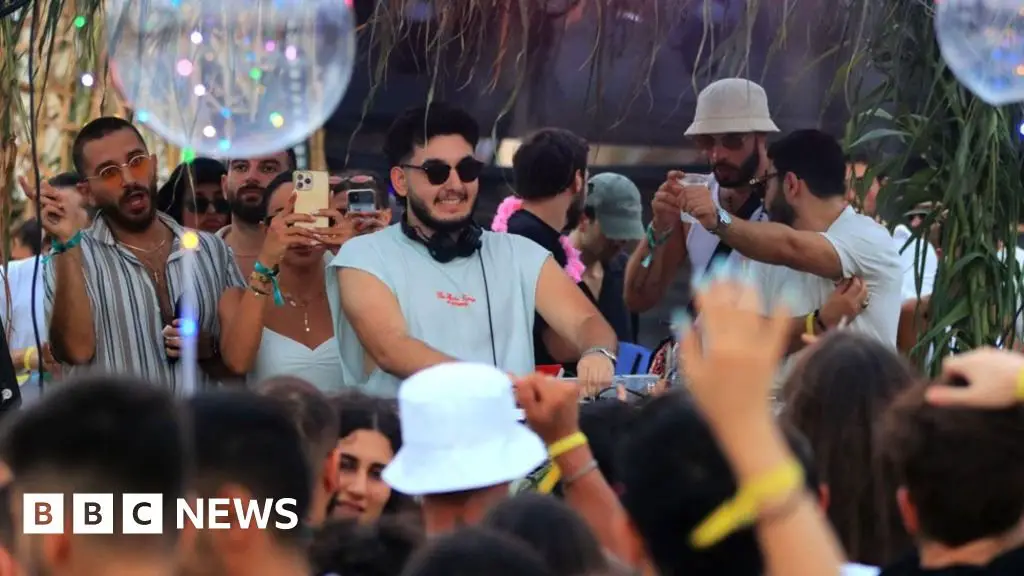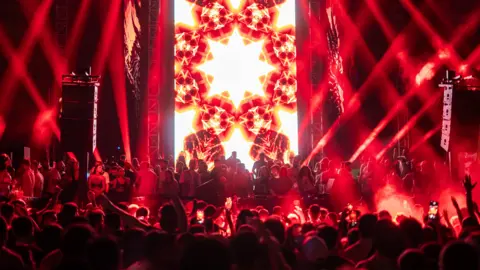 This is an experience
This is an experienceAmid the struggle for a new Syria, the country’s musicians are wary of the Islamist rebel leadership and hope to build on the hard-won gains of the nearly 14-year civil war.
The conflict gave energy and focus to a nascent heavy metal scene.
As the fighting subsided, a thriving electronic music and dance show industry rose from the ashes, leading to a resurgence of Syrian nightlife.
Now its members are preparing to make contact with a government led by the Hayat Tahrir al-Sham (HTS) – a group with roots in al-Qaeda and the Islamic State.
“We have to be organized before we go to them because they are so organized,” said DJ and musician Maher Green. “We are ready to talk to them logically. We are ready to talk to them with a real proposal.”
Electronic music organizers found a way to talk to the former president’s security services, Green said.
“They didn’t understand the gathering of 50 boys and girls and dancing in such a silly way,” he said. “We have built a relationship with them over the years to ensure everything goes well and peacefully.”
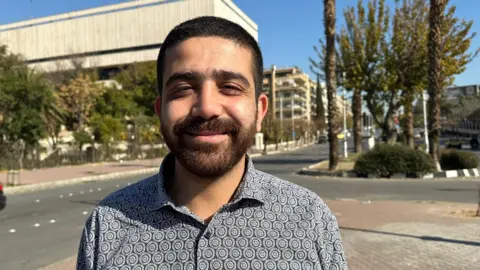
The Assad regime was less tolerant of the heavy metal rockers who formed underground bands in the late 1990s and early 2000s.
They viewed it as a subversive Western subculture linked to Satanism.
“I went to the secret service maybe three times just because I sold this kind of music,” said Nael al-Hadidi, who owned a music store. “They made me sign some papers saying I wouldn’t do it again.”
When the brutal suppression of the pro-democracy revolution in Syria sparked a bloody civil war, criticism changed.
“Before the war, even if you grew your hair long, wore black T-shirts or metal dance T-shirts, security would pick you up. They suspected you were a Satanist or something,” al-Hadidi said.
“After the war started, they were too busy to dig in this way. They were more afraid of the political stuff.”
This opened space for the emergence of a vibrant heavy metal scene, which is the subject of a documentary film by Monzer Darwish entitled “Syrian Metal is War”.
The war may have given metal bands new life, but it ultimately led to a mass exodus of musicians who felt that the country no longer offered a future.
“Ninety percent of my friends now live in Europe, the Netherlands and Germany,” said al-Hadidi, shaking his head.
Wajd Khair is a musician who stayed, but in 2011, when the murder began, he gave up music.
“It seemed that all the lyrics I wrote didn’t express what was really happening, no words could express what was happening at the time,” he told me.
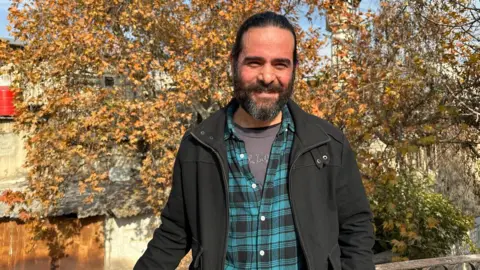
It wasn’t until last year that Khair finally started playing and recording again. Now he asks himself what the Islamist leadership means for creative freedom.
“We have to be bolder,” he said when asked if he would hold back until the situation becomes clearer.
“We need to be heard. We need to let everyone know that we are here. We exist. It’s not just the Islamic Front and the Islamic State that exist here. I don’t think it’s good for anyone to keep a low profile under these circumstances.”
Khair was encouraged by the pragmatism he displayed in the days after the rebels came to power. “The signs are that hopefully we will do better,” he said.
But as he spoke, we heard that HTS had closed the opera house. “Not a good sign,” if that’s true, Khair exclaimed.
We rushed to the venue, only to be told by officials outside the venue that this was a false alarm and that the venerable institution would be opening along with other public buildings a week after the rebel victory.
The HTS certainly promises to respect rights and freedoms and declares that it broke with its extremist past a long time ago.
It seems to have a feel for the cosmopolitan culture of Damascus. State television began broadcasting Islamic chants last week but stopped in less than 24 hours as protests erupted on social media.
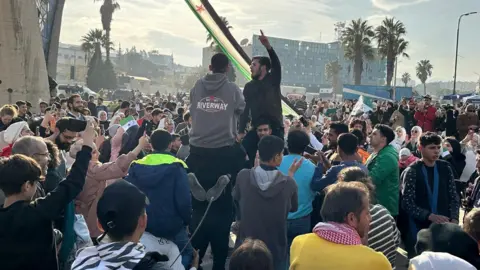
In the square in front of the opera house, Safana Bakleh tried to perform revolutionary songs with the choir she led. Together with enthusiastic young people, she handed over her drum and made them sing and sing.
“It may not be an easy road,” she said. “Maybe we will have some new obstacles, but we used to have corruption, we used to have a dictatorship, we used to have a secret police. We are still very hopeful about the future… because we have a very, very large group of people. This is opposition and artists and actors, musicians and composers and the future of Syria.”
But they don’t want to trade political authoritarianism for religious fundamentalism, al-Hadidi said.
“I hope HTS stands by their words about freedom because we don’t want to be another Afghanistan or another country ruled by a certain party or rulers who force you to follow certain rules.”
Determined to remain part of Syria’s future, Green said it was important for the artistic community to act quickly.
“It doesn’t look like (HTS) is ready to take care of the cultural side in the first week after the liberation of Syria. They have a lot of problems, they are looking for the economy, for forming a new government,” he said.
“We’re trying to get organized before they start looking at culture. So that we get there first and we have to be united in our opinions.”
Like others here, Green has experimented, mixing traditional Arabic music with electronic beats.
The Islamist rebels’ culture “consists of religious songs and that’s all,” he said.
“This is a bit backwards for us. We were here in Syria before the war and there during the war, where we conducted so many experiments. We have evolved so much. We have so much mixed culture.”
Syria’s music scene revived and even thrived during the civil war – now it faces a new and unexpected test.


